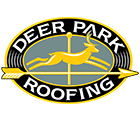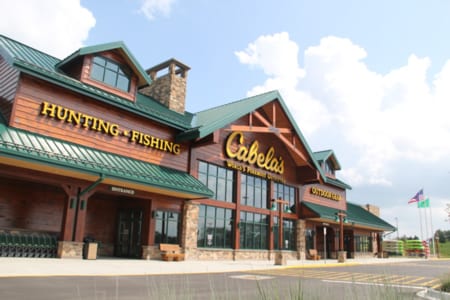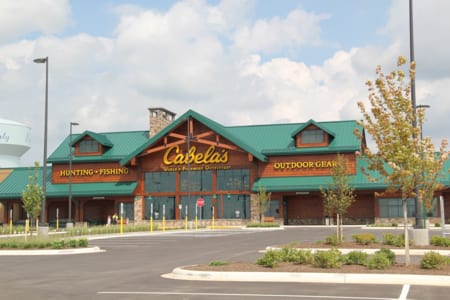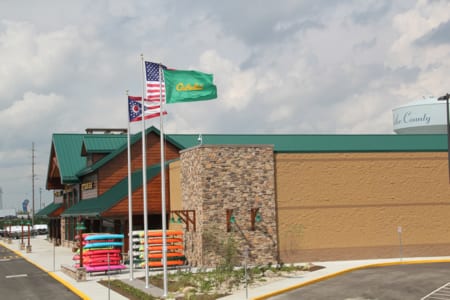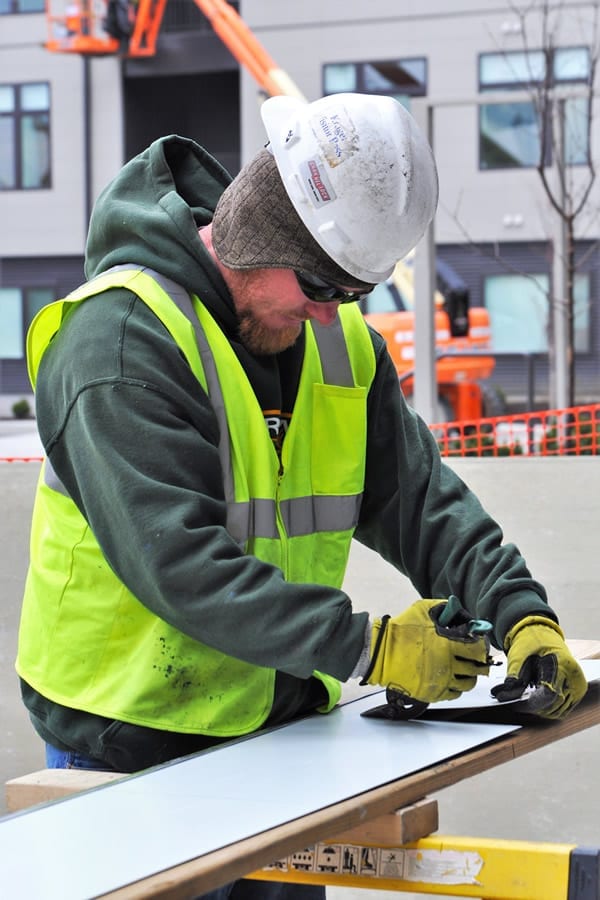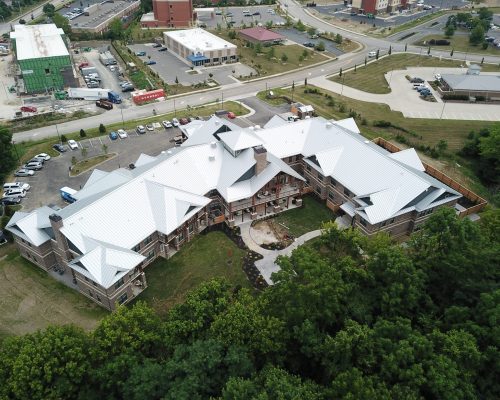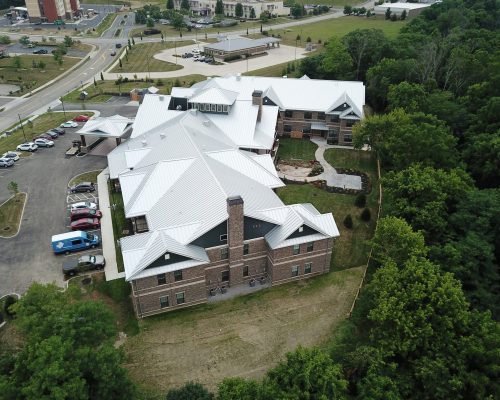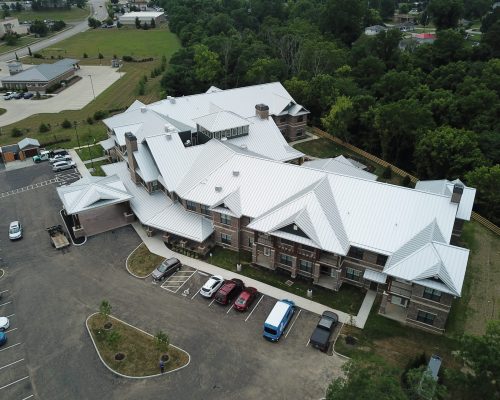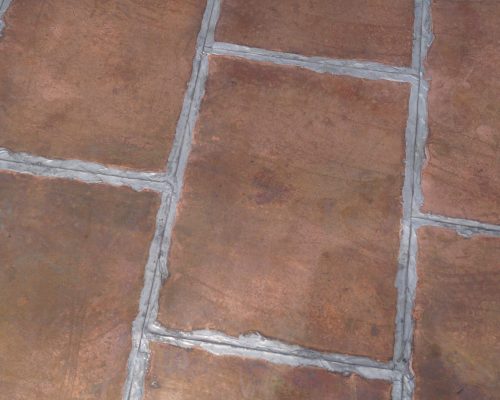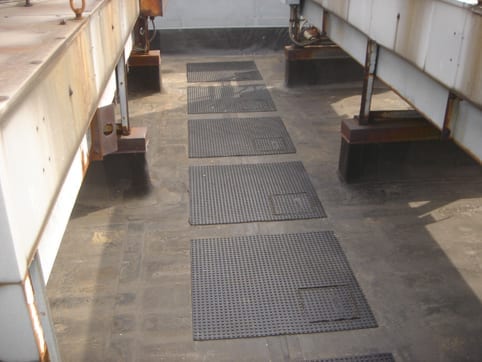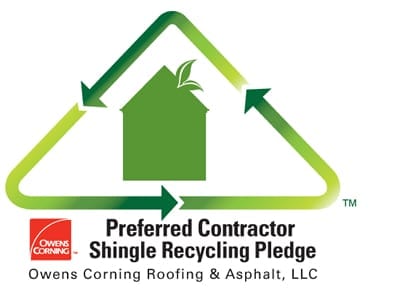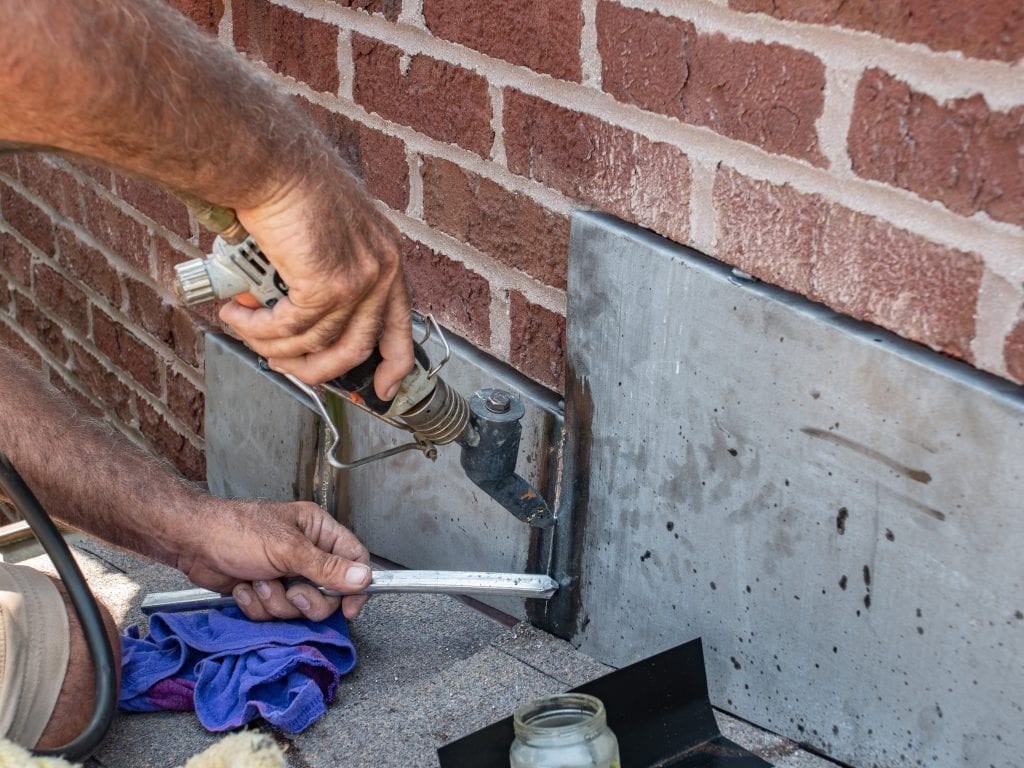Gutters and Downspouts
Commercial gutters and downspouts are commonly fabricated from 24 gauge pre-finished steel or .040 pre finished aluminum. Shop fabricated gutters and downspouts are typically fabricated in 10 foot lengths and the seams are mechanically attached and sealed. Expansion joints should be installed on commercial gutter systems with lengths greater than 40 feet.
Commercial gutter and downspout sizes are determined by the roof surface area, slope of the roof system, and the historical rainfall data. Common commercial gutter sizes range from 7 inches to 10 inches in diameter. Commercial downspouts are usually rectangular in shape and can be found in sizes up to 4 inches x 6 inches.
Box Gutters
For information about built up gutter systems, box gutters, and/or box gutter liners Click Here.
The following types of metals are commonly used in roofing systems:
Steel is the most common metal used in commercial roofing because of its strength and cost effectiveness. Steel is a metal alloy that consists of 98% iron and 2% carbon. Steel that is used for commercial metal roofing is pre-painted to reduce corrosion. Steel used in commercial roofing applications are most commonly available in thicknesses of 24 gauge.
Galvalume is a steel product that contains both aluminum and zinc. Galvalume out performs galvanized steel in commercial low sloped roof systems because of its corrosion resistance.
Aluminum is a corrosion resistant material that can be used to install standing seam roof systems. Aluminum has a very high rate of thermal expansion and contraction relative to other metals. For this reason, emphasis must be placed on proper design when aluminum is specified on roofing projects. Aluminum used in roofing is pre-painted in a variety of colors. Aluminum coil is measured by its thickness in inches. Common thickness for commercial roofing is at least .040 inches for metal copings and gutters.
Copper Roof systems are known for their durability, longevity, and beauty. Copper sheets used for residential and commercial roofing applications are measured in ounces per square foot instead of thickness. The most common copper weights in commercial applications 20 and 24 ounces per square foot. Copper is easily soldered and requires very little maintenance. Copper is a very soft (malleable) metal and lacks the strength that other metals possess.
For more information about metal roofing systems, please Contact Us.
